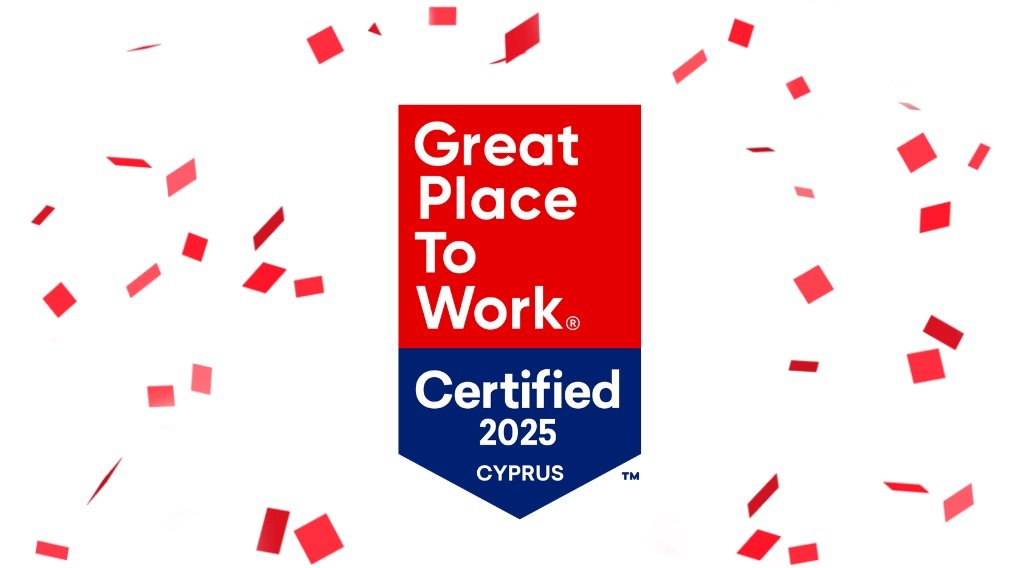
A good work environment is more than just a place of employment. It helps engage employees, improve workplace morale, and support growth. So, how can you create this? Employee surveys help understand how workers feel and what they experience.
By collecting anonymous feedback on various areas, such as leadership, communication, work-life balance, and recognition, companies can utilise employee feedback data platforms and AI to gather vital information for improvement.
This feedback helps focus on specific issues and strengthen what is already good. Eventually, this leads to a more engaged and happier workforce.
What is a Workplace?
A workplace is much more than just the physical location where tasks are completed. It encompasses the overall environment, the organisation’s culture, and the quality of relationships among colleagues. In a truly positive workplace, employees feel valued, respected, and genuinely supported, with the freedom to express their authentic selves without fear of judgment or discrimination.
Cultivating an inclusive atmosphere is vital for lasting success. When people from diverse backgrounds—across gender, ethnicity, sexual orientation, religion, and more—feel a true sense of belonging, the entire organisation benefits.
Embracing diversity and recognising the unique strengths that each individual brings leads to a dynamic, collaborative, and resilient workplace culture, fostering both personal growth and long-term organisational prosperity.
What is the purpose of a workplace?
The purpose of a workplace reaches far beyond simply providing a site for employees to fulfil their job responsibilities. A well-designed workplace is a catalyst for productivity, operational efficiency, and innovation—with the ultimate goal of driving organisational success. By fostering an environment rooted in comfort, collaboration, and employee well-being, the workplace becomes a place where high performance and positive results naturally follow.
The workplace plays a crucial role in personal and professional development. It offers opportunities for individuals to acquire new skills, broaden their experience, and advance their careers. A supportive and inspiring environment not only nurtures talent but also motivates people to reach their fullest potential—contributing to the growth of both the individual and the organisation as a whole.
What are the main employee benefits in Cyprus?
Employee benefits in Cyprus are designed not only to meet legal requirements but also to attract, retain, and support talented professionals across a range of industries.
The scope and generosity of these benefits can vary based on the sector, company size, and specific employment agreements. Still, many organisations—increasingly aware of global best practices—offer a robust package to support employee well-being and satisfaction.
| Benefit | Description |
| Annual Leave | Paid time off for vacation and personal reasons, typically around 20-22 days. |
| Sick Leave | Paid leave for illness, ensuring employees can prioritise their health. |
| Maternity Leave | Extended paid leave for mothers before and after childbirth. |
| Public Holidays | Paid time off for national and religious holidays. |
| Social Security | Contributions to a social insurance system, providing benefits like pensions. |
| Provident Fund (Optional) | Employer contributions to a retirement savings plan. |
| Health Insurance | Employer-provided or subsidized health insurance plans. |
| Hybrid and Remote Work | Allows employees to work part-time from home or other locations, promoting work-life balance and flexibility. |
| Flexible Working Hours | Offers employees the ability to adjust their work schedule, improving autonomy and accommodating personal commitments. |
| Unlimited Annual Leave | It allows employees to take as much paid time off as they need, promoting mental health and well-being. |
| Training and Development | Offers professional growth through job-related and personal interest learning, fostering skill development and personal growth. |
| Travelling | Encourages employees to travel, whether for business or personal purposes, to support work-life balance and cultural enrichment. |
In addition, some companies in Cyprus offer further benefits such as bonuses, meal allowances, transportation assistance, or flexible working arrangements to attract and retain employees in a competitive job market.
What is a Workplace Certification?
A workplace certification is an official recognition awarded to organisations that meet established standards for a positive and high-quality work environment, such as fairness, respect, employee well-being, and an inclusive culture.
This workplace certification signals to employees, job candidates, clients, and the public that a company genuinely values and invests in its people and workplace practices.
Workplace certification processes involve:
- Ongoing measurement and commitment to improvement based on employee feedback.
- Independent assessments through employee surveys (e.g., Trust Index, culture audits).
- Reviews of HR policies, leadership practices, and organisational culture against industry benchmarks and best practices.
This video from Great Place To Work Deutschland explains how an employee survey works.
Is Workplace certification possible for companies in Cyprus?
Yes, companies in Cyprus can obtain workplace certification regardless of size or industry. Great Place to Work®, the global authority on workplace culture with a presence in over 90 countries, offers companies the opportunity to participate in such certification programs.
Certification includes an employee survey and, for large organisations, the submission of what we call a cultural audit. This helps companies fully understand the workplace experience. If a company meets the needed standards, it earns the certification, which lasts for a specific time. It shows its commitment to a positive work environment.
When companies in Cyprus actively work for and earn workplace certification, they show they care about global best practices in human resource management. This can improve their reputation and brand image, helping them attract and retain the best talent.

What is a Workplace Recognition Program?
A workplace recognition program is a structured approach that organisations use to acknowledge and celebrate employees’ contributions and achievements. These programs go beyond financial rewards, fostering a culture of appreciation and respect where employees feel genuinely valued for their efforts. Recognition can take many forms—including verbal praise, written commendations, awards, public acknowledgement, or opportunities for growth and development.
When a company consistently recognizes both individual accomplishments and team successes, it strengthens morale, boosts employee engagement, and enhances retention. A well-designed recognition program not only motivates employees to perform at their best but also helps create a positive, supportive workplace culture where everyone feels appreciated and inspired to contribute to the organization’s success.
Will certifying the workplace increase the company’s recognition?
Yes, achieving workplace certification can significantly enhance a company’s visibility and reputation. Certification serves as public proof that an organisation is committed to building a positive, rewarding work environment.
This workplace recognition extends beyond internal culture, as certified workplaces frequently receive accolades, features in industry publications, attention on social media, and prominent listings on job platforms. Such positive exposure not only strengthens the company’s employer brand but also makes it more attractive to high-quality job candidates while improving credibility with clients and business partners.
Certification acts as an official seal of approval, signaling to potential employees that the organisation genuinely values its people and prioritises their well-being. In a competitive job market, this trusted reputation can be a decisive factor in attracting and retaining top talent.
What steps are needed to certify a company’s workplace in Cyprus?
The following steps are taken whenever a company wishes to certify its workplace:
1. Survey Your Employees
- Conduct the Trust Index Survey, an employee feedback survey that measures employee experience across key workplace dimensions like trust, leadership, and company culture.
- The survey consists of 60 statements and 5 standard demographics.
- Employees respond anonymously, ensuring honest feedback.
2. Complete the Culture Brief
- Submit details about your organisation, including size, industry, and workplace programs.
- This helps provide context for survey results and employer branding.
For Companies with over 200 employees – submit the Culture Audit:
The Culture Audit is a detailed questionnaire that helps Great Place to Work evaluate a company’s workplace culture, leadership, and HR practices. It is primarily used for Best Workplaces rankings rather than just certification.
3. Data Analysis & Certification Decision
- Great Place to Work analyses survey results and compares them against benchmark data through a SAS Platform, the Emprising.
- If your company meets the Certification threshold (typically 65%+ positive responses), you become Great Place to Work-Certified.
4. Employer Branding & Recognition
Once certified, you receive:
- The Certification badge will be showcased on websites, social media, and recruitment materials.
- A feature on the Great Place to Work website and other media opportunities.
- Eligibility to be considered for Best Workplaces lists (e.g., Europe’s Best Workplaces, Fortune 100 Best Companies to Work For, and Best Workplaces in Cyprus).
5. Action Planning & Continuous Improvement
- Receive survey insights and analytics to identify strengths and areas for improvement.
- Use tools like GPTWs to analyse and accelerate the development of strategies for enhancing workplace culture.
This video of Great Place to Work UK, explains how the survey platform works on emprising.
What is the purpose of the Culture Audit?
The purpose of the Culture Audit is to:
- Provides qualitative insights into how a company creates and sustains a great workplace culture.
- Evaluate people practices, leadership philosophy, and organisational values beyond employee survey results.
- Helps differentiate companies competing for a spot on the Best Workplaces lists (e.g., Europe’s Best Workplaces, and Cyprus Best Workplace for Women).
What Does It Include?
A written submission covering key aspects of workplace culture, such as:
- Leadership & Values — How leadership inspires trust and aligns with company values.
- Hiring & Onboarding — How new employees are recruited and integrated.
- Employee Development — Training, career growth, and mentorship programs.
- Recognition & Rewards — How employees are acknowledged and rewarded.
- Well-being & Work-Life Balance — Policies supporting employee health and flexibility.
- Diversity, Equity & Inclusion — Efforts to create a fair and inclusive workplace.
- Certification Award — Once your company meets the certification standards, you will receive official recognition, usually valid for a specified period. Continuous improvement is essential to maintaining effective workplace practices.
- Feedback and Improvement — After the assessment, companies receive detailed feedback and recommendations for enhancement. Use this feedback to refine your workplace strategies.
What is Workplace Engagement?
Workplace engagement describes the level of enthusiasm, dedication, and emotional commitment employees bring to their roles each day. It reflects how much individuals genuinely care about the company they work for and its goals—not just showing up physically, but being passionately invested and motivated to make a meaningful impact.
Truly engaged employees go above and beyond basic job requirements. A sense of purpose drives them, they take pride in their work, and are eager to contribute to organisational success. Human resources professionals understand that workplace engagement is about forging a strong connection between employees and their jobs—where people feel valued, supported, and aligned with the company’s values and mission.
This high level of engagement benefits both individuals and organisations. Engaged employees are proactive, collaborative, and consistently strive for excellence, helping to maximise overall business performance. They are also less likely to be absent or disengaged, as their personal sense of fulfilment drives stronger attendance and higher productivity.
How do we measure workplace engagement in Cyprus?
Measuring workplace engagement is very important for companies in Cyprus. It helps them understand how their employees feel and find ways to improve. A good way to measure employee engagement is by using well-made surveys.
The survey questions should focus on essential aspects of the employee experience. These include job satisfaction, relationships with managers and peers, shared company values, and chances for growth. By making questions specific to the Cypriot workplace, companies can learn more about what drives engagement.
Looking at the survey data helps companies see trends. They can find out where employees feel appreciated and where they need more support. This information allows companies to make better choices and create focused plans to build a more engaged and rewarding work environment.
At Great Place to Work® Cyprus, we measure workplace engagement through our employee feedback survey – the Trust Index:
The Trust Index Survey is the cornerstone of Great Place to Work’s research methodology. It is designed to assess employee experience and workplace culture through a data-driven approach.
Built on over 30 years of research, the survey gives organisations insights into trust, leadership effectiveness, workplace fairness, and employee engagement. It is the primary tool for Great Place to Work Certification and eligibility for Best Workplaces rankings worldwide.
What is the Trust Index Survey?
At its core, the Trust Index Survey measures the quality of the relationships between employees and their leaders, their work, and their colleagues. Research has shown that these relationships are the foundation of a high-performing and engaging workplace.
The structured survey gives organisations a clear picture of how employees perceive their work environment and whether they experience a culture of trust and inclusivity. The survey consists of 60 core statements that employees respond to on a five-point Likert scale, ranging from strongly disagree to agree strongly.
These statements are grouped into five key dimensions of trust that define a great workplace:
| Dimension | What It Measures | Example Statement |
| Credibility | Leadership transparency, communication, and competence. | Management is honest and ethical in its business practices. |
| Respect | Employee support, inclusion, and recognition. | Management genuinely seeks and responds to suggestions and ideas. |
| Fairness | Equity in decision-making, rewards, and policies. | Promotions go to those who best deserve them. |
| Pride | Employees’ connection to their work and company mission. | I feel proud to tell others I work here. |
| Camaraderie | Teamwork, collaboration, and sense of belonging. | People care about each other here. |
In addition to these core statements, organisations may include:
- Demographic questions to analyse variations in employee experience across different groups (e.g., job level, gender, tenure).
- Open-ended questions to gather qualitative insights on company culture.
This video from Great Place To Work Nederland explains what the Trust Index Survey is and how it works.
What is the research behind the Trust Index Survey?
The Trust Index Survey is scientifically designed to measure employee sentiment accurately and reliably. It is based on decades of global research from millions of employees across industries, allowing organisations to compare their results with regional, sector, and Best Workplaces benchmarks.
Key Research Findings
- High-trust workplaces outperform their competitors. Companies with strong Trust Index scores see higher innovation, financial performance, and employee engagement.
- Trust is a key driver of employee retention. Employees in high-trust workplaces are three times more likely to stay with their company long-term.
- Inclusivity matters. The for-all methodology, an extension of the Trust Index, ensures that workplace culture is equally experienced across different demographic groups. Organisations that excel in this area benefit from greater agility, innovation, and long-term success.
Using the Trust Index Survey, organisations gain a measure of workplace culture and a roadmap for building a more engaged, innovative, and high-performing workforce.
What is the Trust Index Survey process?
The Trust Index Survey is designed to be flexible and can be conducted in various formats to suit different workplaces.
1️. Survey Launch — Employees receive a confidential survey link (available in over 40 languages).
2️. Data Collection — Surveys remain open for 1-3 weeks, depending on company size and response rates.
3️. Analysis & Benchmarking — Results are compared against industry and Best Workplaces benchmarks.
4️. Certification & Insights — Companies meeting the 65%+ positive response threshold become Great Place to Work-Certified.
Customization & Benchmarking
While the 60 core statements remain standard across all organizations, companies can customize their survey by adding additional questions that address their specific workplace priorities. The benchmarking capability allows organizations to track progress over time and measure their workplace culture against leading employers in their region and industry.
Why does the Trust Index Survey matter?
The Trust Index Survey is more than just an employee engagement tool—it provides a strategic advantage for companies seeking to build strong, inclusive workplace cultures.
By leveraging the insights from the survey, organisations can:
✔ Identify areas for cultural improvement and implement targeted action plans.
✔ Enhance employee trust and engagement, leading to better performance and retention.
✔ Strengthen employer branding and attract top talent by showcasing a strong workplace culture.
✔ Qualify for Great Place to Work Certification and gain recognition as a Best Workplace.
Ultimately, the Trust Index Survey is a powerful instrument that transforms workplace culture data into actionable insights, helping organizations build a thriving, high-trust workplace that benefits employees and business performance.
What are the different levels of workplace engagement?
Recognising the varying levels of workplace engagement is essential for designing strategies that truly motivate employees. Generally, employees fall into distinct categories along the engagement spectrum, each with unique characteristics and effects on organisational performance.
- Highly Engaged Employees: These individuals are enthusiastic, committed, and consistently go above and beyond in their roles. They find genuine meaning in their work, feel valued by the organization, and are generous in their contributions to the team. Highly engaged employees often inspire others and drive positive results across the workplace.
- Moderately Engaged Employees: Employees at this level are generally dependable and perform their duties competently, but may lack the deep passion or commitment seen in highly engaged colleagues. With the right support and opportunities for development, they have the potential to become more fully engaged.
- Actively Disengaged Employees: At the other end of the spectrum, these individuals show low morale, minimal effort, and little enthusiasm for their work. Actively disengaged employees can undermine team morale and hinder overall productivity, sometimes even spreading negativity within the organization.
Understanding what drives engagement is vital for shifting employees toward higher engagement levels. Key drivers include meaningful work, clear opportunities for growth and career development, supportive leadership, and a positive, inclusive workplace culture. Organisations that prioritise these factors create a work environment that not only meets the diverse needs of their people but also fosters greater loyalty, motivation, and performance throughout their teams.
How does workplace engagement affect employee productivity?
Workplace engagement has a direct and powerful impact on employee productivity. When individuals feel genuinely valued, supported, and connected to their work, they are more likely to be highly motivated and committed. Engaged employees consistently show up with energy and enthusiasm, go above and beyond expectations, and strive for excellence in their roles.
The positive effects of engagement extend well beyond simply increasing the volume of work completed. Higher engagement leads to improved work quality, greater attention to detail, and a stronger sense of personal responsibility.
Employees who care about their work are more invested in achieving the best possible outcomes, resulting in fewer errors and a greater willingness to take ownership of tasks and projects. This positive mindset and culture of engagement spread throughout the organisation, driving higher levels of teamwork, collaboration, and overall performance.
Why should Cypriot companies improve workplace engagement?
Workplace engagement is not just a bonus—it’s a fundamental driver of business success. For companies in Cyprus, fostering strong employee engagement has become essential to remain competitive and achieve sustainable growth. A company’s performance is directly influenced by how motivated, satisfied, and enthusiastic its employees feel; when staff are valued and committed, the entire organisation—from frontline teams to senior leadership and clients—benefits.
Investing in workplace engagement yields:
- Lower turnover and cost efficiency: Engaged employees are more likely to stay with the company, reducing recruitment expenses and minimizing the disruptions associated with frequent departures.
- Greater productivity and performance: Motivated teams work more efficiently, deliver higher-quality results, and proactively contribute to organisational objectives.
- Enhanced employer brand and ability to attract talent: When employees are engaged, they naturally become advocates—helping to build a positive company reputation and attract top-tier talent.
- Healthier, more positive workplace culture: Prioritising engagement fosters a culture of recognition, professional growth, and well-being—key ingredients in building a truly outstanding workplace.
- Distinct competitive advantage: In Cyprus’s evolving job market, companies that invest in engagement distinguish themselves, building resilience and encouraging innovation.
Ultimately, by making employee engagement a strategic priority, Cypriot organizations can strengthen their internal culture, improve performance, and secure a lasting edge in a rapidly changing economy.
What is Employee Engagement?
Employee engagement refers to the emotional connection and commitment that employees feel toward their work and organisation. It goes beyond basic job satisfaction—instead, it reflects a more profound sense of enthusiasm, motivation, and willingness to invest discretionary effort to help the company achieve its goals. As a key human resources metric, employee engagement signals not only alignment with organisational objectives but also a readiness to contribute above and beyond expectations.
Highly engaged employees have a strong sense of purpose and pride in their workplace. They care about the organisation’s success, consistently bring energy to their tasks, and actively promote a positive work environment. This high level of engagement drives superior performance, enhances productivity, and helps cultivate a vibrant, positive company culture.
What are employee engagement surveys?
Employee engagement surveys are invaluable tools. They collect information about employees’ feelings about their jobs, work environment, and the company itself. These surveys have specific questions that help understand employee feelings, check satisfaction, and find improvement areas.
There are different kinds of employee surveys:
- Annual surveys: These give a complete picture of engagement at one time each year.
- Pulse surveys: These are shorter and happen more often to see how engagement changes and catches problems quickly.
The data from these surveys helps companies make wise choices. They can improve workplace culture, boost employee morale, address issues, and foster a more engaged and productive work environment.
Is regular training essential for maintaining high employee engagement?
Yes, regular training is essential for keeping employees engaged. When companies offer development opportunities, it shows they care about employee growth. This helps employees reach their full potential.
Continuous improvement is essential for engagement. Employees who get regular training learn new skills and stay updated on industry changes. They feel more confident in what they do. This makes them feel valued and helps them stay interested in their work.
Also, when companies provide training that matches career goals, they care about employees’ development. This leads to a more fulfilling work experience. It encourages employees to see a future in the company.
What is the difference between engaged and disengaged employees?
Understanding the distinction between engaged and disengaged employees is crucial for creating a thriving workplace. While both types of employees contribute to the organisation, their attitudes, behaviours, and impact on the workplace differ significantly.
Engaged employees are enthusiastic, dedicated, and passionate about their work. They go the extra mile, demonstrating initiative, creativity, and a commitment to achieving organisational goals. Disengaged employees, on the other hand, display a lack of motivation, enthusiasm, and connection to their work and the company.
| Factor | Engaged Employee | Disengaged Employee |
| Attitude | Positive, enthusiastic, passionate | Negative, apathetic, indifferent |
| Motivation | High, self-driven, takes initiative | Low, requires constant supervision, avoids tasks |
| Productivity | High, consistently exceeds expectations | Low, meets only bare minimum requirements |
| Communication | Open, honest, proactive | Closed off, minimal communication |
| Teamwork | Collaborative, supportive, team player | Uncooperative, isolate themselves |
What is Workplace Culture?
Workplace culture is the collective personality of an organisation. It is defined by the shared values, beliefs, attitudes, and behaviours that shape how employees interact, make decisions, and carry out their work. This culture influences every aspect of the work environment—including communication style, leadership approach, collaboration, and expectations for performance.
A positive workplace culture is built on foundations such as trust, respect, inclusion, and open communication. It is evident in the way employees treat each other, how they align with the company’s goals, and how they contribute to the organisation’s success. Culture acts as an unwritten guide, helping employees understand what is encouraged and valued within the organisation.
A strong, healthy workplace culture not only improves teamwork, engagement, and job satisfaction but also attracts top talent and supports long-term business success. Ultimately, workplace culture is a powerful driver of organisational performance and plays a crucial role in retaining employees and achieving strategic goals.
What defines a positive workplace culture in Cyprus?
In Cyprus, a positive workplace culture is deeply influenced by the country’s strong emphasis on family values and personal connections. Organisations that prioritise work-life balance, offer flexible working arrangements, and demonstrate genuine concern for employee well-being are highly regarded. This approach reflects the broader Cypriot culture, which values close relationships and mutual support.
A healthy workplace culture in Cyprus also mirrors the nation’s tradition of warmth and hospitality. Open and transparent communication is essential—employees should feel comfortable expressing their ideas, concerns, and aspirations without fear of judgment. Leaders play a crucial role by actively listening, showing empathy, and fostering a collaborative, supportive environment.
A positive workplace culture in Cyprus respects both the country’s traditional values and the evolving needs of a diverse workforce. By championing inclusivity, respect, and open dialogue, organisations can create a motivating and rewarding environment where employees feel valued, engaged, and empowered to excel.
Does a strong workplace culture reduce employee turnover?
Yes, a strong workplace culture can significantly reduce employee turnover. When an organisation fosters a positive culture—built on trust, respect, open communication, and support for employee well-being—employees are more likely to feel valued, engaged, and satisfied in their roles. This sense of belonging and purpose increases job satisfaction and loyalty, making employees less likely to seek opportunities elsewhere.
A healthy workplace culture also encourages personal and professional growth, recognises contributions, and aligns with employees’ values and needs. These elements create a supportive environment where people want to remain and contribute, leading to lower rates of voluntary resignations. In essence, organisations with strong cultures attract and retain top talent, minimise the costs and disruptions of frequent turnover, and build a more stable, motivated workforce.
What defines Workplace Diversity?
Workplace diversity refers to the presence of individuals from a wide range of backgrounds, identities, and perspectives within an organisation. This encompasses differences in gender, age, ethnicity, sexual orientation, religious beliefs, and political views, as well as varied life experiences and skill sets. A truly diverse workforce brings together a rich spectrum of ideas, talents, and viewpoints, fostering greater creativity, innovation, and problem-solving ability.
However, genuine workplace diversity is more than simply meeting quotas or fulfilling requirements—it’s about intentionally building an environment where everyone feels respected, valued, and empowered to contribute. Employees should feel free to express their unique strengths and perspectives without fear of bias or exclusion. To create this inclusive and appealing workplace, companies must go beyond surface-level initiatives.
This requires a strategic commitment to removing barriers in recruitment, promotion, and daily practices, ensuring equal access and opportunity for all. By embracing and nurturing diversity at every level, organisations not only attract top talent from a wide range of backgrounds but also lay the foundation for long-term success and a vibrant, engaging company culture.
What is an inclusive workplace culture?
An inclusive workplace culture is an environment where every employee—regardless of their background, identity, or circumstances—feels genuinely valued, respected, and empowered to contribute. Inclusion goes beyond simply having a diverse workforce; it’s about ensuring that individuals of all genders, ethnicities, ages, abilities, religions, sexual orientations, and life experiences can fully participate and thrive within the organisation.
Key characteristics of an inclusive workplace culture include:
- Equity and Fairness: Policies and practices are designed to ensure everyone has equal access to opportunities, resources, and advancement without bias or favoritism.
- Psychological Safety: Employees feel comfortable expressing ideas, voicing concerns, and sharing their authentic selves without fear of exclusion or discrimination.
- Respect for Differences: Diverse perspectives and cultural traditions are celebrated and integrated into decision-making, teamwork, and everyday interactions.
- Empowerment and Participation: All employees are encouraged to take part in shaping workplace practices, planning, and problem-solving—regardless of rank or background.
- Active Support: Leadership and management take deliberate steps to address barriers, provide accommodations, and promote the well-being of all staff members.
Organizations committed to inclusion often provide ongoing diversity and sensitivity training, celebrate cultural events, ensure accessibility, and continuously assess their environment to address inequities or unintended biases. The result is a vibrant, innovative, and collaborative workplace where everyone feels a sense of belonging and is motivated to bring their best to work.
What are the differences between diversity and inclusion?
Diversity and inclusion (DEI) are closely related concepts, but they have distinct meanings and roles within an organisation:
- Diversity is about the presence and representation of differences within a workplace or group. It refers to the mix of people from various backgrounds—including gender, ethnicity, age, sexual orientation, religion, physical abilities, and more. Diversity is fundamentally about “who is at the table” and can be measured quantitatively (such as workforce demographics).
- Inclusion, on the other hand, is about how those differences are welcomed, respected, and integrated. It focuses on creating an environment where everyone feels valued, supported, and empowered to contribute fully—regardless of their background or identity. Inclusion is about the “how” of ensuring that all employees can participate, share their perspectives, and feel a sense of belonging. This is more qualitative, focusing on employee experiences, engagement, and culture.
Without inclusion, diversity can become superficial or even lead to feelings of isolation or tokenism. The actual benefits of diversity are realised only when inclusion is an integral part of the organisational culture.
Do Cypriot businesses implement diversity training programs?
Yes, diversity training programs are increasingly being implemented by Cypriot businesses. Both multinational and progressive local companies in Cyprus recognise the value of inclusive workplaces. They are investing in regular training sessions on topics such as unconscious bias, inclusive leadership, and cultural awareness.
These initiatives help foster open communication, reduce bias, and create more supportive, collaborative teams. While there is still progress to be made—particularly at the senior management level—these efforts are making Cypriot organisations more attractive to diverse talent and better equipped to succeed in a multicultural business environment.
What is a Workplace Environment?
A workplace environment includes the physical space, the people we interact with, and the organisation’s culture, all contributing to the overall work atmosphere. This means it’s about things we can see, like the office layout and facilities, as well as the rules for how we talk and interact, encompassing all aspects of work.
The workplace environment is very important. It affects how employees feel, how well they do their work, and how happy they are overall. A positive and supportive environment helps employees feel like they belong. It also encourages us to communicate openly, creating a positive environment that allows everyone to grow and develop in their roles.
What defines a healthy workplace environment in Cyprus?
A healthy workplace in Cyprus focuses on employees’ well-being and encourages a balance between work and personal life. This type of environment values respect and inclusion. Open communication and mutual respect are key to this culture. Workers’ mental and physical health is a genuine concern. Such an environment understands the importance of giving employees what they need to succeed at work and in their personal lives.
This means providing good pay and benefits, chances for professional development, and access to health care and wellness programs. In addition, a healthy workplace in Cyprus welcomes diversity. It builds a space where everyone feels valued. All employees are respected and empowered to share their skills and talents.
What does Workplace Equity mean?
Workplace equity goes beyond simply treating everyone the same—it’s about creating a truly fair and supportive environment where all employees have the opportunity to succeed. This means recognising and actively addressing hidden barriers or systemic biases that may disadvantage specific individuals or groups.
Workplace equity ensures equal access to opportunities, fair compensation, and advancement, regardless of one’s background, identity, or circumstances. It calls for pay practices that are transparent and just, broad access to professional development and growth, and a culture that is free from discrimination or harassment.
How does workplace equity differ from workplace equality?
Workplace equity and workplace equality are related but distinct concepts, each shaping how fairness and opportunity are provided within organizations.
- Workplace equality means giving every employee the same resources, opportunities, and support—regardless of individual differences. For example, this could mean everyone receives the same desk, the same holiday policy, or the same professional development budget. The focus is on equal treatment and standardisation across the workforce.
- Workplace equity, on the other hand, recognises that employees may have different backgrounds, needs, or barriers. Equity means adjusting resources and opportunities so everyone has a fair chance to succeed—tailoring support to address individual circumstances. For instance, providing an accessible workstation for someone with a disability or adapting leave policies for diverse cultural practices. The focus is on fairness of outcomes, not just equal input.
While equality is about uniform access and removal of explicit bias, equity is proactive in removing hidden barriers, ensuring that differences in background or circumstance do not prevent success. Effective organisations strive to balance both—starting with equality, but prioritising equity to create a truly fair and inclusive workplace.
How is workplace equity measured in Cyprus?
Measuring workplace equity in Cyprus involves assessing organisational culture, policies, and practices to identify and address potential disparities.
This includes examining key factors such as:
| Measurement Area | Key Considerations |
| Compensation & Benefits | Analyse pays gaps based on gender, ethnicity, and other protected characteristics. |
| Recruitment and Promotion | Evaluate hiring and promotion processes for bias and ensure equal opportunities for all. |
| Access to Development Opportunities | Assess the availability and accessibility of training programs for all employee groups. |
By regularly measuring and analysing these factors, organisations in Cyprus can identify areas where inequities exist and implement targeted interventions to promote a fairer and more equitable work environment.
What is a workplace training program?
A workplace training program in Cyprus is a structured initiative designed to develop employees’ skills and knowledge, supporting both individual advancement and organisational growth. These programs equip staff with practical tools and up-to-date expertise needed to excel in their current roles and prepare for future career opportunities.
Investing in employee training is essential for Cypriot companies that wish to remain competitive and agile. By providing ongoing professional development, organisations demonstrate a genuine commitment to their people’s growth and foster a culture of continuous learning and improvement.
This not only enhances job performance and satisfaction but also helps businesses adapt to changing market demands and achieve long-term success.
How does a workplace training program benefit employees?
Workplace training programs provide many benefits for employees. These programs help them learn the skills and knowledge they need to succeed in their jobs.
Here are some key benefits:
- Better Job Performance: Training programs help employees learn the latest industry knowledge and best methods, allowing them to do their jobs more quickly and effectively.
- Career Growth Opportunities: Employees who learn new skills and gain more knowledge improve their chances for promotions and leadership positions.
- Higher Earning Potential: Employees who gain valuable skills and experience from training can earn more money and become more competitive in the job market.
What is workplace well-being?
Workplace well-being encompasses the physical, mental, and emotional health of employees, focusing on creating an environment where individuals feel genuinely supported and valued. It’s about enabling people to thrive—both professionally and personally—by promoting a healthy work-life balance and fostering a culture of care and respect. Human Resources plays a central role in nurturing well-being by cultivating a positive organisational culture, addressing employee concerns, and offering resources that support overall health and job satisfaction.
When organizations prioritize employee well-being, they benefit from higher morale, increased productivity, and lower turnover rates. Clear communication, empathy, and understanding among colleagues further strengthen workplace relationships and reduce conflict.
What does workplace flexibility mean?
Workplace flexibility refers to the ability for employees and employers to adjust when, where, and how work gets done to accommodate individual needs and changing circumstances better, while still meeting organisational goals.
This flexibility can take many forms, such as:
- Flexible work hours: Allowing employees to start and finish work at times that suit their personal commitments, rather than adhering to a rigid 9-to-5 schedule.
- Remote or hybrid work: Offering the option to work from home, or combine on-site and remote work according to what suits the employee and the role.
- Compressed workweeks or part-time schedules: Structuring hours so that employees can work fewer days for longer shifts, or opt for alternative part-time arrangements.
- Job sharing: Two or more people share responsibilities and hours for the same role.
- Personalized leave policies: Allowing greater choice over when to take personal, family, or wellness leave.
Workplace flexibility recognizes that employees have diverse responsibilities, lifestyles, and working preferences. By offering adaptable work arrangements, organizations can help boost employee satisfaction, engagement, and productivity—while also attracting and retaining top talent. It’s an important driver of well-being and resilience, particularly in today’s rapidly changing work environment.
How Should You Proceed?
Building a certified workplace starts with prioritising employee satisfaction and well-being. Conducting employee surveys is a powerful way to gather insights, boost engagement, and strengthen your company culture.
Now is the time to listen, act, and create a supportive work environment where employees thrive. Start by fostering open communication, recognising achievements, offering growth opportunities, and promoting work-life balance. Regularly assess employee feedback and implement meaningful changes to enhance workplace harmony and productivity.
Don’t wait—take action today and pave the way for a workplace that truly values its people!
Turn Your Workplace into a Great Place to Work!
Employees thrive in great company cultures—let’s build yours! Whether you’re aiming for higher engagement, better retention, or Great Place to Work certification, we’re here to help. Fill out the form and let’s talk!
Latest Articles

The Importance of Cultural Diversity for Cypriot Businesses

What Is a DEI Survey and Why It Matters for Cypriot Workplaces

Managing Diversity in the Workplace: What Cypriot Companies Should Know

17 Different Types of Workplace Diversity in Cyprus

8 Warning Signs of Toxic Workplace Culture in Cyprus (and How to Fix Them)

